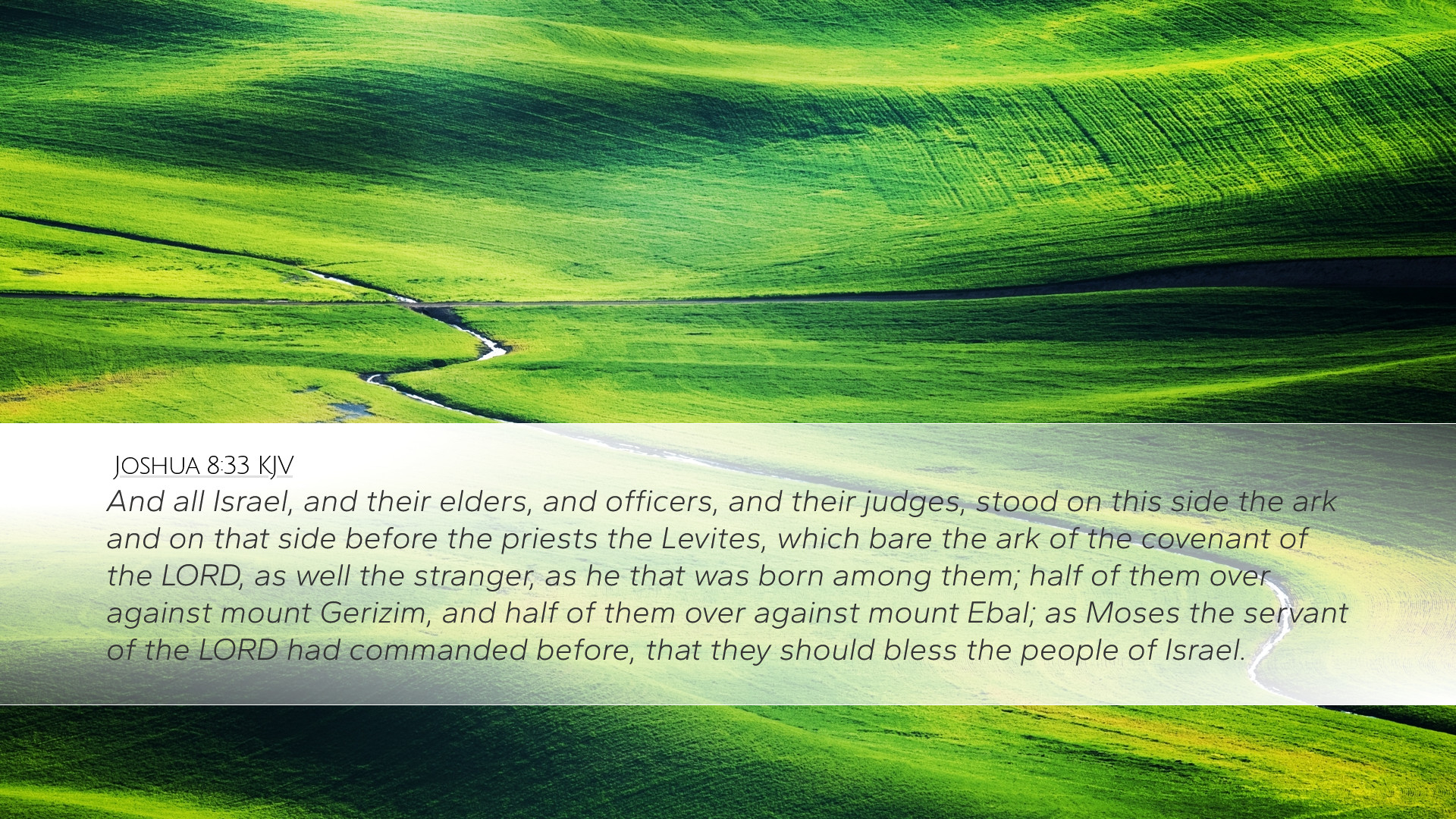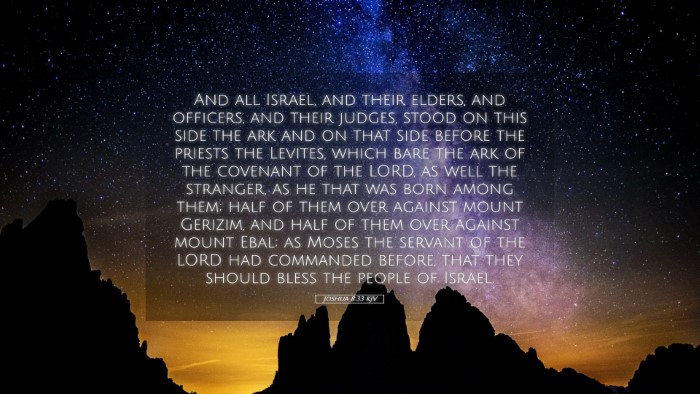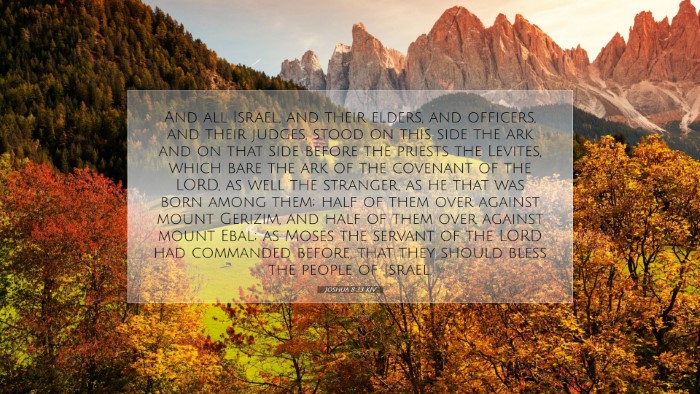Commentary on Joshua 8:33
Text of Joshua 8:33: "And all Israel, and their elders, and officers, and their judges, stood on this side of the ark, and on that side before the priests the Levites, which bare the ark of the covenant of the LORD, as well the stranger, as he that was born among them; half of them over against mount Gerizim, and half of them over against mount Ebal; as Moses the servant of the LORD had commanded before, that they should bless the people of Israel."
Contextual Setting
The events recorded in Joshua 8:33 occur after the Israelites' conquest of Ai. This moment serves as a pivotal point where the covenant obligations are reaffirmed by the assembly of Israel. The people are gathered in accordance with Moses’ command in Deuteronomy 27, where blessings and curses are pronounced in the presence of the community.
Insights from Public Domain Commentaries
Matthew Henry's Commentary
Matthew Henry emphasizes the importance of this assembly in the larger narrative of Israel’s journey to fulfill God’s commands. Here are key takeaways from his insights:
- Covenant Renewal: The gathering signifies a renewal of the covenant relationship between God and Israel. The people are publicly proclaiming their commitment to obedience.
- Inclusivity: Henry notes that both the native-born and the foreigner stood together, emphasizing that the blessings of God were accessible to all who were in covenant with Him.
- Geographical Significance: The positioning of the tribes on Mount Gerizim and Mount Ebal plays a symbolic role, creating a physical manifestation of God's blessings and curses as prescribed by Moses.
Albert Barnes' Exposition
Albert Barnes offers a detailed interpretation, shedding light on several facets of the verse:
- Assembly of Leaders: Barnes highlights the presence of elders, officers, and judges. Their participation shows the unity of leadership in spiritual matters of the community.
- Reinforcement of God’s Law: The act underscores the critical nature of God’s commands and the necessity for obedience as central to Israel's identity.
- Mount Gerizim and Mount Ebal: He explicates the significance of these locations, referring to their prophetic nature in blessing and cursing, reinforcing the accountability of the people to uphold God's laws.
Adam Clarke's Commentary
Adam Clarke provides a rich theological exploration of this moment, focusing on the implications of the actions recorded:
- Unity of the People: Clarke points out that the gathering illustrates the importance of unity among the Israelites. This was a moment to solidify their national identity and mission.
- Role of the Priests: The priests' role in bearing the ark is emphasized, symbolizing their mediating function between God and the people, reminding the community of God's constant presence.
- Historical Significance: Clarke highlights that this moment resonates with the historical commands given by Moses, thus linking the present action with Israel's past and future responsibilities.
Theological Reflections
The convergence of these insights forms a rich tapestry of understanding concerning Joshua 8:33:
- Community and Covenant: The gathering signifies the biblical understanding that individuals are called to live in community under the covenant of God. There is a collective responsibility to uphold God's law.
- Intergenerational Faithfulness: The text emphasizes continuity in faith and obedience across generations, as children and leaders alike participate in the declarations before God.
- God's Unchanging Nature: The act of fulfilling Moses' command illustrates the faithfulness of God to His promises and the expectation of His people to adhere to His teachings.
Conclusion
Joshua 8:33 is not merely an historical record but serves as a powerful reminder for contemporary readers regarding the importance of community in worship, the necessity of covenantal obedience, and the role of leaders in guiding their people toward God's expectations. Pastors, students, theologians, and scholars can draw upon these insights to enrich their understanding of biblical communal worship and the enduring implications of God’s covenant.


